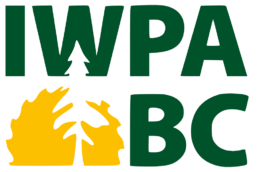Vancouver Sun: A new softwood lumber tax will likely kill what is left of Value Added in BC
(A new softwood) tax would really hurt us and you know it’s going to be higher than last time.
Group calls for quota on exports to United States
A group of British Columbia independent value-added wood producers are prodding Canadian negotiators in a controversial direction as the deadline to come up with a new Canada-U.S. lumber trade agreement looms.
Russ Cameron, the president of the Independent Wood Processors Association, argues Canada should concede to a desire in the United States for a quota on Canadian lumber shipments before the grace period in the softwood lumber agreement expires in October.
Parties have until Oct. 15 to strike a deal before a grace period in the last softwood lumber agreement expires, opening up the possibility of another trade dispute. The industry in the U.S. has not wavered in its position that the Crown management of timber lands in some provinces — B.C. in particular — subsidizes lumber producers.
The Independent Wood Processors Association of B.C. is on board with the American position that a replacement deal should include a quota on Canadian lumber shipments to the U.S. That’s a case the group’s president, Russ Cameron, has made to B.C.’s top negotiator in the talks.
That, however, is a non-starter for the B.C. Lumber Trade Council, the main industry lobby group, which says quotas distort the market.
At the very least, Cameron argued, a lumber trade agreement should make Canada’s big lumber producers, and not his members, bear the cost of any new export taxes included in a deal. The producers own cutting rights to timber supplies, but the association’s members aren’t so lucky.
“A (new) border tax would really hurt us,” Cameron said, “and you know it’s going to be higher than last time because the (U.S. industry) doesn’t want one, so if they ever did agree to one, we’ve got to make it attractive.”
The Canada-U.S. softwood lumber deal expired last October, triggering a one-year standstill agreement during which neither side would take trade action against the other.
Export taxes imposed under the 2006 softwood lumber agreement, designed to kick in when commodity prices for lumber were low, wound up being tied up in the finished products of value-added producers, which Cameron said was crushing for IWPA members.
Cameron said his association’s members have a tough time acquiring raw materials because they don’t own timber rights, which are mostly controlled by a handful of B.C. companies. That leaves them reliant on the tenureholding producers to buy lumber.
In a last-minute lobbying effort, Cameron sent a letter last week to a long list of B.C. mayors, MLAs, MPs and senators, including B.C. Forest Minister Steve Thomson, to press his group’s case.
“We’re still pushing that (any) tax should be paid by the guys benefiting from the tenure (ownership of timber-cutting rights),” Cameron said. “They’re obviously willing to pay the tax to keep (tenure rights), but there’s no way we can afford to do it.”
Cameron also believes IWPA members would get a better deal out of a quota system, which would give them a prescribed share of timber supplies and provide an incentive for major producers to sell them timber rather than using up more of their own quota.
A lumber quota with the U.S., however, would weaken Canada’s trade position with other countries, according to Susan Yurkovich, president of the B.C. Lumber Trade Council.
“I respect Russ Cameron’s position, (but) I disagree with it,” said Yurkovich, who is also CEO of the Council of Forest Industries, which represents the interests of B.C.’s interior lumber producers.
If other trading partners know Canadian producers have hit their cap on shipments to the U.S., that would hurt the industry’s ability to negotiate a fair price, Yurkovich said.
“So (a quota has) a distorting effect on the market,” she said.
Yurkovich also argued B.C. would be doubly punished by a quota because it has put the effort into opening up markets in the Asia Pacific region, China in particular.
She said quotas would likely be based on past shipments to the U.S. — numbers that were recently smaller than usual because the industry was serving that new demand across the Pacific.
In late July, a group of U.S. senators backed the American industry’s position on limiting Canada’s access with a quota. However, observers believe the amount of market access American negotiators have offered Canada is less than its producers have historically had, analyst Kevin Mason said.
Mason, managing director of the firm ERA Forest Products Research, said Canada’s share of the U.S. market has varied over the last three decades from as low as about 26 per cent during the depths of the U.S. housing crisis to as high as 33 per cent during better times.
However, Mason said his understanding is that the American starting position on a quota is a market share of 25 per cent.
“(Canadian shipments) have pretty much never been that low,” Mason said.
Yurkovich argued trade negotiations are the wrong place for the IWPA to be pressing governments on making changes to their policies on tenure rights to timber.
“I think they are two separate issues … This is about access to the U.S. market,” she said, adding that the B.C. Lumber Trade Council is hopeful the sides can arrive at a managed trade deal.
In an emailed statement, Thomson said B.C. will release a plan for the value-added forestry sector in the near future.
